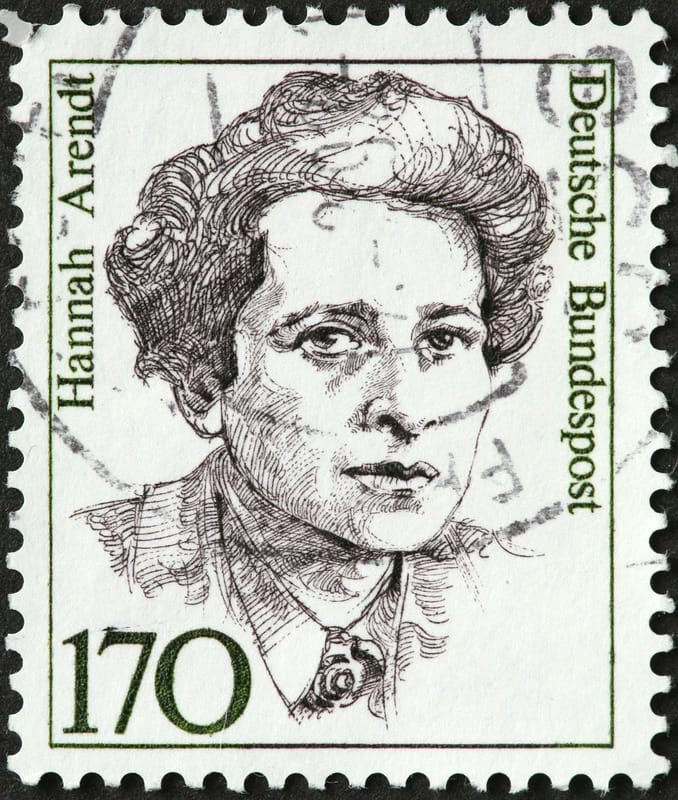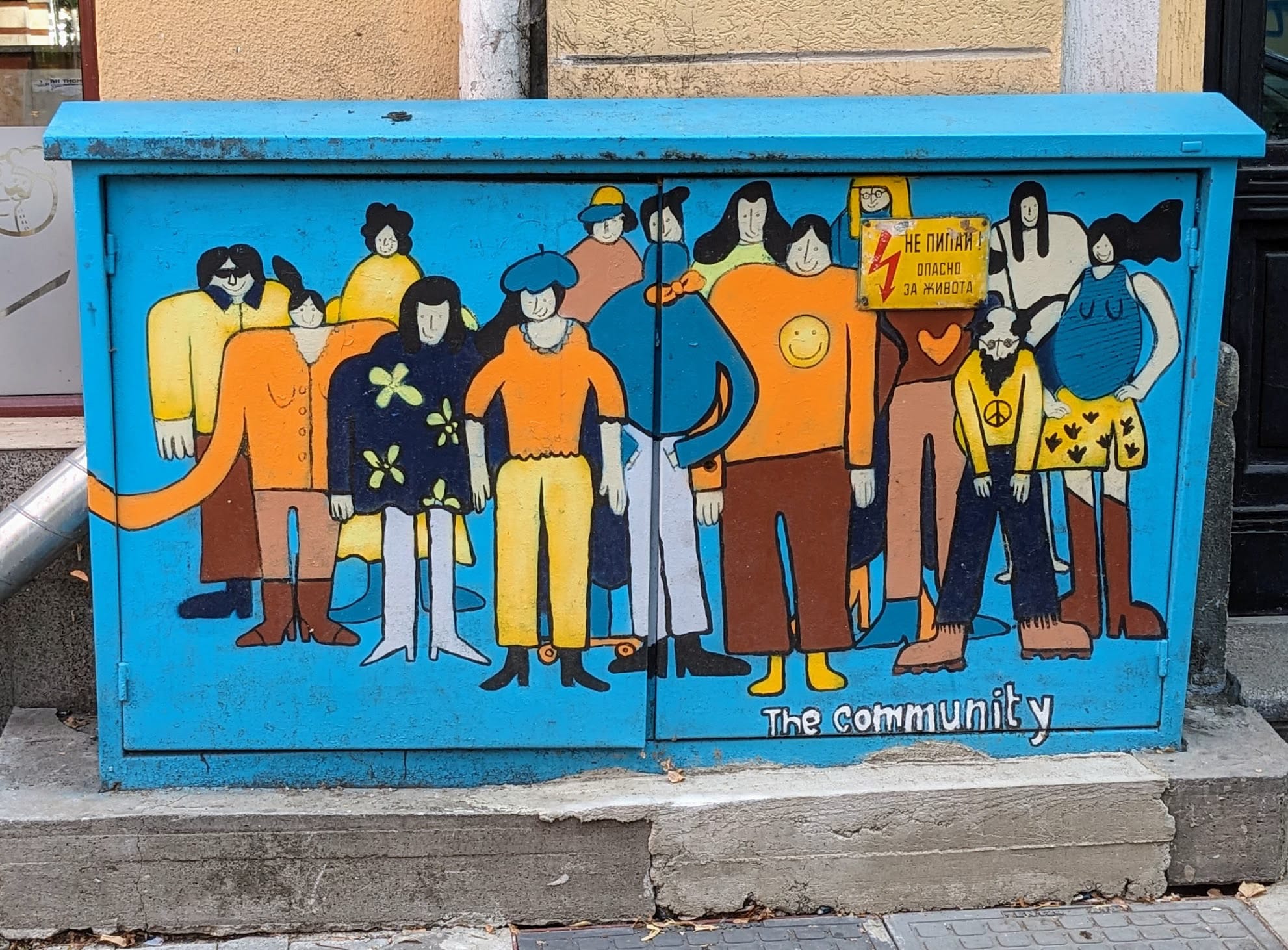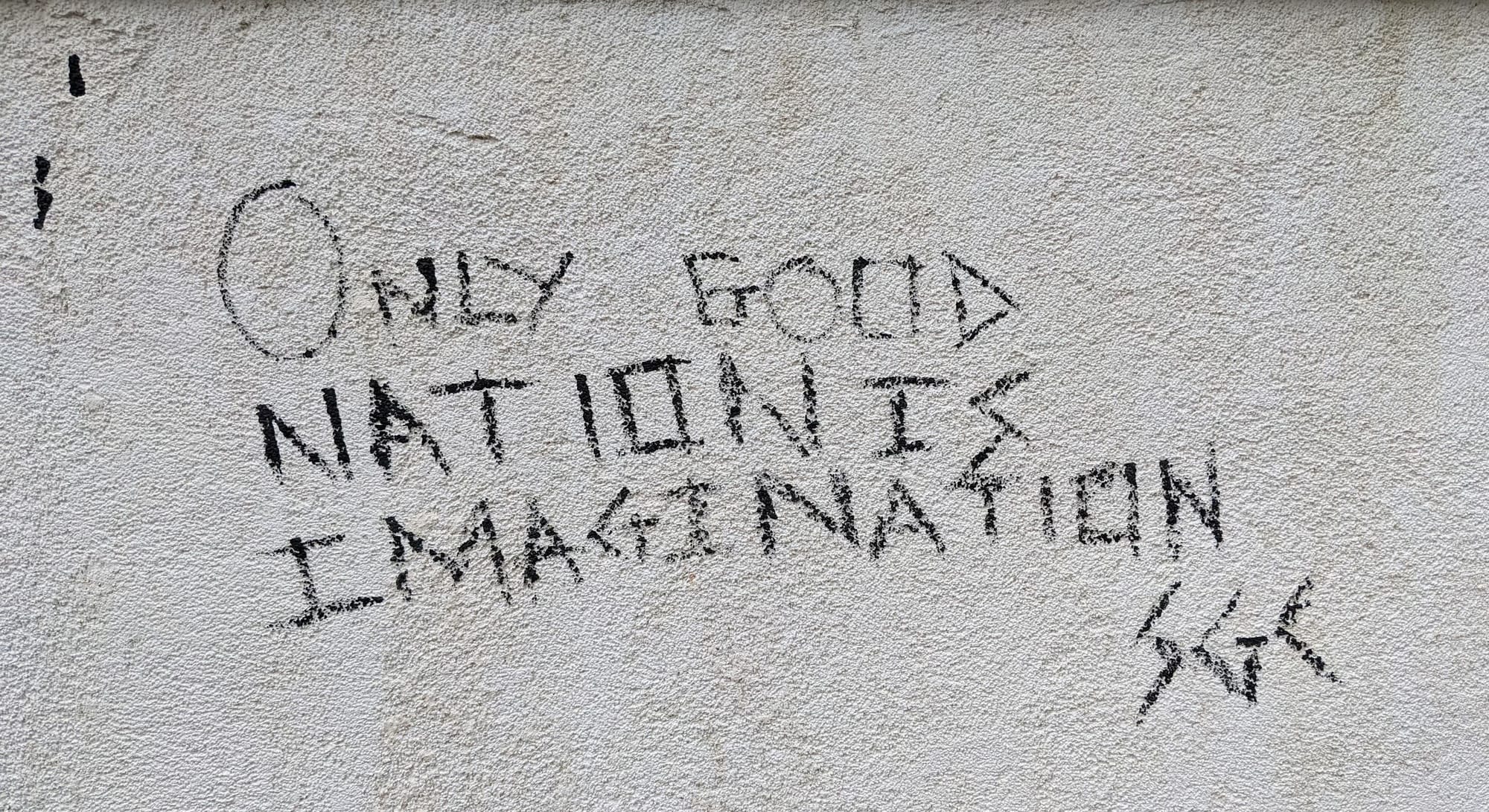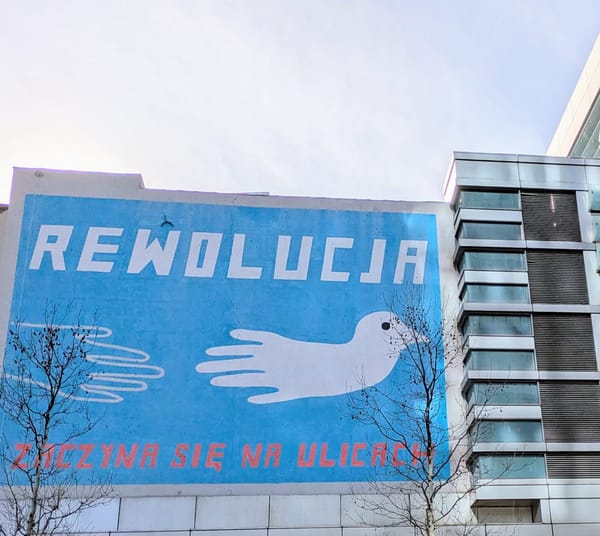The case for We-ification
Viewing the political action of hate groups around the globe through your local lens

I called my mom this week (not bragging, just something I do). Instead of her most frequent opening line, “¿is everything okay?”, she opened the conversation with a Hannah Arendt quote:
“The sad truth is that most evil is done by people who never make up their minds to be good or evil.”
- Hanna Arendt

I was surprised. Not because it was out of character. She was not fortunate to have jobs that matched up with her intellect, so for as long as I’ve known her (all my life, as it happens) she reads and reads–typically spending more time between the hours of 10 pm and 8 am reading than sleeping. I was surprised, even a bit startled, because she does not tend to lead conversations with weight-of-the-world reflections. Yet such is the weight-of-the-world at this moment that these are the conversations that we need to have.
Our conversation reminded me of one of the practices I’ve been trying in my own work, and that I want to encourage teams of journalists in the US to do more of. We-ification. It is simultaneously simple AND complex. When I catch myself judging groups with which I don’t naturally identify, I try to reset my thinking by replacing “them” or “they,”with “we.” A perfect example is shorthand generational reductionism. When a quality news source offers yet another “Why millennials/boomers_____” column, try using “we.” Maybe the issue is fundamentally about human behavior at a particular age rather than distinct generational traits.
Thank you for reading Notes from New Europe. This post is public so feel free to share it.
Sometimes the generational focus is useful. Often, however, it prevents me, or us, from learning about our own assumptions and actions because we have focused on others. By we-ifying I can see the roots of a problem, and I’m more likely to learn something about what we can do to make sense of it. And then perhaps I can find something to do about our problems, mistakes, and challenges.
This feels especially relevant in a week when much of what I have been looking at is about the work of hate groups through political and governing structures, here in the Balkans, and back home in New England. In reading through the analysis of CSD scholars I catch myself thinking “what is it about the Bulgarian culture, the Serbian discourse, Greek xenophobia that gives oxygen to hate as a political tool?” Reasonable and important questions. Though some ongoing reporting from a former colleague back home reminded me to we-ify.
Phillip Martin is a long-time public media reporter and editor who is currently based at WGBH in Boston, one of the largest public media organizations in the country. He has been on the ism beat for years now. He is a methodical reporter who has dedicated his much of his life to tracking racism, antisemitism, homophobia–the roots of hate and public and private work of hate groups to undermine civic society.
This week he reported on the work of a dysorganization that calls itself the “Goyim Defense League” (oh G-d. where to start with this insidious cynicism…). This hate group has infiltrated public government meetings recently across New England cities and towns where I have spent a lot of my life. It is a national strategy that somehow feels all the more absurd and surprising in these historically multi-cultural communities. I won’t get into the details in this post, as you should follow Phillip’s reporting here.

Taking the time to connect what we read about one community to similar issues across the globe encourages us to get closer to the root problem. Scholars at CSD are quite skilled at tracking the influence of hate groups throughout this region and beyond. Their work is enlightening. It reveals the connective tissue between hate groups across borders and regions. The CSD analysts point to shared language and strategies, and tracking the roots of impactful messaging. AND they note the almost-dialectical variances from one community or nation to another.
Their analysis of Right wing extremism in the EU, commissioned by the European Parliament, is one particularly useful resource. I’m poring over the data for each EU country, and recognizing that we all have to consider to what extent we’ve stood by as hate groups have become normalized within our political discourse.
Bailey Galicia, a researcher and Masters student at the University of Glasgow, has been here for a few months looking at the tools of disinformation within hate groups across the region. He is also American, and is working on a thesis about malign information on the Truth Social platform. Bailey has been generous in sharing what he is learning as he looks at similarities and distinctions among so-called Far Right groups/movements in Romania, Serba, and Greece. Key themes are familiar to all of us: nationalism, anti-elite rhetoric, the proliferation of conspiracy theories and ridicule of scientific process. And nostalgia for a past that never truly existed. While the specific targets of hate vary, the fears projected about the others are quite consistent.
Once you we-ify, the seeming absurdity of Romania’s Alliance for the Unification of Romanians narratives is all too familiar.
Galicia: “In response to proposed laws aimed at family safety and gender equality, Simion (the leader of AUR) hosted a protest pushing the absurd claim that the laws allowed selling Romania’s children to the West. This narrative of using children for occult purposes mirrors QAnon conspiracies popularized in the United States. Creating an ‘us versus them’ division between more traditionalist Romanians and the mainstream paints the mainstream as a threat to the four pillars central to the AUR: “faith, liberty, family, and religion.”
Dear reader, what I am asking of myself and journalists probably seems much more earnest than provocative. Yet I have witnessed very few editorial meetings and casual conversations between journalists where people take a moment to test their assumptions through a simple change in wording. If you haven’t found similar tools to help you sort through the challenges of our current moment, this may help you take a breath and shift from passive, anxious observer to a more productive, participatory stance. Thanks again for reading and learning with me.

“What I propose, therefore, is very simple: it is nothing more than to think what we are doing”
- Hannah Arendt
More about what I am up to: Sylvia Zareva of the America for Bulgaria Foundation interviewed me about radio for ABF’s magazine.
Reading assignment: ¿Wait, you’re not reading Timothy Snyder’s newsletter, Thinking about? Fix that.
Additional reading: Download the full report on Right Wing Extremism across the EU, including country by country data, here.
A bit of absurdity: I can’t help but notice I’ve spoken to a Phillip and a Bailey for this post, so how about a parting song from, yup…



